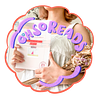You need to sign in or sign up before continuing.
Take a photo of a barcode or cover
Things I liked:
1) The realness - this could 100% happen. The story takes place before and after an unknown event that resulted in a worldwide shut-down of the internet.
2) Social commentary - It's basically a treatise on the internet of things and our willingness to let our data be used for anything and everything.
3) Diversity of characters
4) Pretty genius plot devices (no spoilers here)
Things I am so-so about:
1) Difficult to read in places if you aren't well-versed in electronics/computers (or if you, like me, have a tendency to read too quickly)
2) Plot devices (yes, they are pretty clever, but they are still a little too contrived at times)
3) Shallow character development - characters take a back seat to the story
Overall, a 3.5-star book. I definitely enjoyed it, and I look forward to the movie version - this screams Hollywood.
1) The realness - this could 100% happen. The story takes place before and after an unknown event that resulted in a worldwide shut-down of the internet.
2) Social commentary - It's basically a treatise on the internet of things and our willingness to let our data be used for anything and everything.
3) Diversity of characters
4) Pretty genius plot devices (no spoilers here)
Things I am so-so about:
1) Difficult to read in places if you aren't well-versed in electronics/computers (or if you, like me, have a tendency to read too quickly)
2) Plot devices (yes, they are pretty clever, but they are still a little too contrived at times)
3) Shallow character development - characters take a back seat to the story
Overall, a 3.5-star book. I definitely enjoyed it, and I look forward to the movie version - this screams Hollywood.
Infinite fucking detail. I was assigned a passage from this book for class and it completely sucked me in — so much so that I went back to the beginning and read the entire novel. The premise is so good. I could have done with 2-3 fewer characters so I could have gotten to know each of them better.
I don't think this is a good book, but it's definitely a good story. It feels a little like someone had a very winded contemplation about the future after reading Sapiens or something and then wrote it down in a manner that could be worse but isn't fabulous.
Imagine Wall-E, but then an internet apocalypse. It's all very serious and philosophical and everything has to be puzzled through. The plot is grave, and I'm sure graves are mentioned somewhere. Humor has its moments, though; the line "Wouldn't they be better in the country, out in the wilds and swamps of the south, where they could kill and stuff whatever they like, and mount it on their walls, while they fixate over their homemade preserves and cross-stitch cushions, like some kind of post-Tumblr Amish sect?" is really really funny to me. It was written in 2019, so everything makes sense, internet-wise. It's almost concerningly current, I suppose. I can totally see the plot being applied to the world right now, and it's a little scary. I love how it talks about what a catastrophe an internet apocalypse would be in such graphic detail.
Not a lot else makes sense, to be honest. The plot may be sensical but not much supports it. The dialogue is pretty wild in terms of where and how much, but every character has, like, quirks and I love it so that's why there are four stars. It also does time-jumps every chapter, which I missed at first. Still really good, I recommend it if you like thinking.
Imagine Wall-E, but then an internet apocalypse. It's all very serious and philosophical and everything has to be puzzled through. The plot is grave, and I'm sure graves are mentioned somewhere. Humor has its moments, though; the line "Wouldn't they be better in the country, out in the wilds and swamps of the south, where they could kill and stuff whatever they like, and mount it on their walls, while they fixate over their homemade preserves and cross-stitch cushions, like some kind of post-Tumblr Amish sect?" is really really funny to me. It was written in 2019, so everything makes sense, internet-wise. It's almost concerningly current, I suppose. I can totally see the plot being applied to the world right now, and it's a little scary. I love how it talks about what a catastrophe an internet apocalypse would be in such graphic detail.
Not a lot else makes sense, to be honest. The plot may be sensical but not much supports it. The dialogue is pretty wild in terms of where and how much, but every character has, like, quirks and I love it so that's why there are four stars. It also does time-jumps every chapter, which I missed at first. Still really good, I recommend it if you like thinking.
This book wasn't for me. It's not a book I would have usually picked up and I definitely wouldn't have persevered with it, had it not been a book club read. I'm also unsure whether my listening to this book on audio and its uninspiring narration affected my enjoyment of this story. I was bored, kids.
It wasn't like this was a terrible premise - an examination of the loss of the internet and its affect on society - but I didn't care about the characters and some of their narrative strands didn't add much to the overall story.
Some people are calling this a future SF classic... a natural successor to 1984 in classrooms. There are interesting elements here, to do with internet reliance and with marketing and purchase tracking in order to fulfill need and drive sales, shown by a loyalty points system devised by councils for recycling of cans. These are sent directly to the purchaser, whilst tracking when that person became thirsty, when and where they bought the drink and then when are where they recycled it. You can see how we ended up in the apocalyptic situation that the 'After' chapters present, as we are confronted with before and after for characters throughout. I just didn't really engage with it and didn't care, as a result.
I'm sure many out there will disagree with me, but well-crafted characters, plot or language (any one of the three) might have saved this book for me and - as far as I'm concerned - it didn't have any of these to commend it. Swing and a miss.
It wasn't like this was a terrible premise - an examination of the loss of the internet and its affect on society - but I didn't care about the characters and some of their narrative strands didn't add much to the overall story.
Some people are calling this a future SF classic... a natural successor to 1984 in classrooms. There are interesting elements here, to do with internet reliance and with marketing and purchase tracking in order to fulfill need and drive sales, shown by a loyalty points system devised by councils for recycling of cans. These are sent directly to the purchaser, whilst tracking when that person became thirsty, when and where they bought the drink and then when are where they recycled it. You can see how we ended up in the apocalyptic situation that the 'After' chapters present, as we are confronted with before and after for characters throughout. I just didn't really engage with it and didn't care, as a result.
I'm sure many out there will disagree with me, but well-crafted characters, plot or language (any one of the three) might have saved this book for me and - as far as I'm concerned - it didn't have any of these to commend it. Swing and a miss.
I finished Tim Maughan’s *Infinite Detail*. It’s ostensibly a book about what happens in the near future if the internet goes away. It’s really about human memory and its relationship to technology’s ability to augment that memory to the point of infinite detail. The pastiche of memories, churned and tumbled by time and their reconstruction during recall, puts a gauze of light between now and then. The infinite detail is the perfect recall of not a single photograph—with its limited perspective, its intentional omissions, its meaningful composition—but of *many* photographs and videos and depth maps and audio recordings and sensor data and vital signs, all taken together as a amalgam of objective truth and representation of the world. Human memory, soft and malleable as flesh, works at cross purposes with this infinite detail.
I liked the book. As far as genre books go, it’s fine. It’s not literary, and it’s not a hero’s journey or a story with a definitive beginning, middle, and end. The details of how “a worm, a virus” took down the internet by exploiting a structural flaw in TCP/IP don’t make any sense, but they don’t have to, and it would’ve been better if it were either explained more (Gödelian exploit after turning packet switching into its own Turning machine, or something out there like that) or explained less, with less specificity and less knowledge. It does seem like a somewhat plausible future. I don’t like the focus on a capitalistic view of what “ownership” is, though; that seems more fixed in the society Maughan writes than government, democracy, or shared purpose, which seems weird. (Can sci-fi authors please read *Revolution in Rojava*?)
There are a few weird ethical touchstones too: after killing many people and attempting to kill more, emotional hay is made over the execution of the killer, a tank driver, which seemed out of place as it came from a character that had recently killed someone out of unfounded and paranoid suspicion. The book also tries to make us feel sympathy for someone who basically commands child slaves in a labor camp, which doesn’t make sense and doesn’t work at all.
It’s worth reading, though, especially if you like speculative fiction and near-future sci-fi.
I liked the book. As far as genre books go, it’s fine. It’s not literary, and it’s not a hero’s journey or a story with a definitive beginning, middle, and end. The details of how “a worm, a virus” took down the internet by exploiting a structural flaw in TCP/IP don’t make any sense, but they don’t have to, and it would’ve been better if it were either explained more (Gödelian exploit after turning packet switching into its own Turning machine, or something out there like that) or explained less, with less specificity and less knowledge. It does seem like a somewhat plausible future. I don’t like the focus on a capitalistic view of what “ownership” is, though; that seems more fixed in the society Maughan writes than government, democracy, or shared purpose, which seems weird. (Can sci-fi authors please read *Revolution in Rojava*?)
There are a few weird ethical touchstones too: after killing many people and attempting to kill more, emotional hay is made over the execution of the killer, a tank driver, which seemed out of place as it came from a character that had recently killed someone out of unfounded and paranoid suspicion. The book also tries to make us feel sympathy for someone who basically commands child slaves in a labor camp, which doesn’t make sense and doesn’t work at all.
It’s worth reading, though, especially if you like speculative fiction and near-future sci-fi.
Six stars actually. Full review at Skiffy and Fanty. Gracias to NetGalley for the eARC. I bought my own anyway, but I didn't want to wait 8)
Started out great and presented an interesting world with cool details, but I lost the plot during the last quarter or so and just couldn't find it again.
This book is quite a refreshing read, it’s very interesting. For a number of reasons:
1. I’m a very visual person; naturally when I read books, I tend to paint pictures in my head following the stories. This book is really well written & filled with a tons of descriptions about the environment/setting & characters as well.
2. Our digital age & its issues; in-line with what we’re living in, it raises the red flags about how we are all overly dependent on the Internet. Without it, it seems like we would be lost & like we’ve disappeared as a whole. It also grants us freedom from the eyes of large corporations.
I, for one, turn wide-eyed & excited when introduced to new technologies & apps. I truly love being involved with all things digital. It comes to a point when reading about the fall of the internet; I actually felt the fear of being disconnect. This shows how I would definitely be lost if the said fall of internet does come true one day.
3. Love & inclusiveness; this book does feature romance in gay & straight relationships. It even shared about the tragedy of losing our loved ones; in a particular one where they just realised how deeply in love they are with each other but were caught in such a bad time between a lover’s quarrel & the start of doomsday.
Summary:
I have fallen in love with this book from the moment I read about a “psychic” girl (she isn’t actually, just in the hands of technology — turned into one) & the description of a high-tech society. I felt thrilled (& horrified) when reading about the outcome of the fall of internet. Through this journey with Infinite Detail, many emotions have been drawn out from me. It’s written fantastically. Please read this if you are one who tend to be absorbed by social media or simply curious to find out what (possible) doomsday awaits us for our very digital generation.
1. I’m a very visual person; naturally when I read books, I tend to paint pictures in my head following the stories. This book is really well written & filled with a tons of descriptions about the environment/setting & characters as well.
2. Our digital age & its issues; in-line with what we’re living in, it raises the red flags about how we are all overly dependent on the Internet. Without it, it seems like we would be lost & like we’ve disappeared as a whole. It also grants us freedom from the eyes of large corporations.
I, for one, turn wide-eyed & excited when introduced to new technologies & apps. I truly love being involved with all things digital. It comes to a point when reading about the fall of the internet; I actually felt the fear of being disconnect. This shows how I would definitely be lost if the said fall of internet does come true one day.
3. Love & inclusiveness; this book does feature romance in gay & straight relationships. It even shared about the tragedy of losing our loved ones; in a particular one where they just realised how deeply in love they are with each other but were caught in such a bad time between a lover’s quarrel & the start of doomsday.
Summary:
I have fallen in love with this book from the moment I read about a “psychic” girl (she isn’t actually, just in the hands of technology — turned into one) & the description of a high-tech society. I felt thrilled (& horrified) when reading about the outcome of the fall of internet. Through this journey with Infinite Detail, many emotions have been drawn out from me. It’s written fantastically. Please read this if you are one who tend to be absorbed by social media or simply curious to find out what (possible) doomsday awaits us for our very digital generation.
Infinite Detail is a novel of our grim cyberpunk present, of a time that feels distinctly pre-apocalyptic. We live in a world with immense accumulations of wealth and power and information, and yet rather than steer towards a coherent vision of the future, hell, do anything at all, these machines alternately brutalize and seduce us. If you want a vision of the future, it's Kendal Jenner offering a riot cop a Pepsi forever.
One timeline, BEFORE, follows hacktivist Rushdi Manaan. Rushdi is British, the sysadmin of the ferociously anti-surveillance Croft, a hip Bristol neighborhood blockaded with wifi jammers running on a Bluetooth mesh network. Rush is in a long distance relationship with Scott in New York, living in a world ruled by a surveillance capitalism machine he hates.
AFTER is, well, after. Someone broke the internet, killing every connected device. As communication networks failed and supply chains froze, 'local autonomy' has risen up to replace the survivors. It's a grim world, with a dislocated population sheltering under warlords of various ideological stripes. The various people in After are trying to make sense of their lives in Bristol. Mary sees dead people, those chaotic final hours in the Croft. Tyrone keeps her safe, tries to score survive Bristol Jungle tapes of a dead rave culture. Anika is a guerilla fighter, on the run from the military dictatorship that runs the UK and looking for a new weapon in her liberation campaign.
At a kind of page-by-page level, this is a pretty good novel. Great gritty feel. But stepping back, it doesn't have characters so much as points of view on events that the characters have no ability to influence. And this is 2020, alarmism about surveillance capitalism is practically passé. At least Maughan is honest that what comes next will likely be sticks, stones, and a lot of corpses, to paraphrase Albert Einstein on World War 4.
One timeline, BEFORE, follows hacktivist Rushdi Manaan. Rushdi is British, the sysadmin of the ferociously anti-surveillance Croft, a hip Bristol neighborhood blockaded with wifi jammers running on a Bluetooth mesh network. Rush is in a long distance relationship with Scott in New York, living in a world ruled by a surveillance capitalism machine he hates.
AFTER is, well, after. Someone broke the internet, killing every connected device. As communication networks failed and supply chains froze, 'local autonomy' has risen up to replace the survivors. It's a grim world, with a dislocated population sheltering under warlords of various ideological stripes. The various people in After are trying to make sense of their lives in Bristol. Mary sees dead people, those chaotic final hours in the Croft. Tyrone keeps her safe, tries to score survive Bristol Jungle tapes of a dead rave culture. Anika is a guerilla fighter, on the run from the military dictatorship that runs the UK and looking for a new weapon in her liberation campaign.
At a kind of page-by-page level, this is a pretty good novel. Great gritty feel. But stepping back, it doesn't have characters so much as points of view on events that the characters have no ability to influence. And this is 2020, alarmism about surveillance capitalism is practically passé. At least Maughan is honest that what comes next will likely be sticks, stones, and a lot of corpses, to paraphrase Albert Einstein on World War 4.








